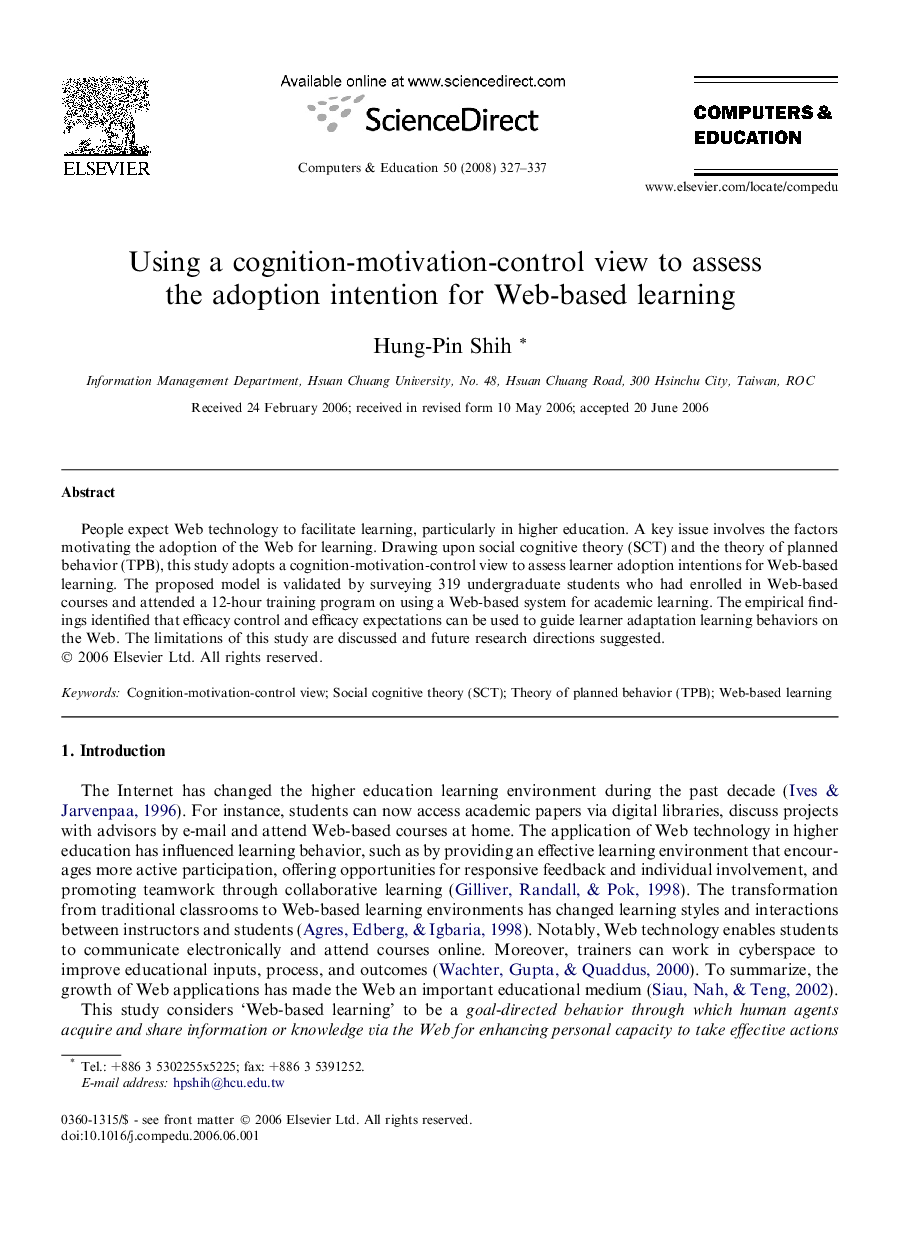| Article ID | Journal | Published Year | Pages | File Type |
|---|---|---|---|---|
| 349858 | Computers & Education | 2008 | 11 Pages |
People expect Web technology to facilitate learning, particularly in higher education. A key issue involves the factors motivating the adoption of the Web for learning. Drawing upon social cognitive theory (SCT) and the theory of planned behavior (TPB), this study adopts a cognition-motivation-control view to assess learner adoption intentions for Web-based learning. The proposed model is validated by surveying 319 undergraduate students who had enrolled in Web-based courses and attended a 12-hour training program on using a Web-based system for academic learning. The empirical findings identified that efficacy control and efficacy expectations can be used to guide learner adaptation learning behaviors on the Web. The limitations of this study are discussed and future research directions suggested.
